| The Daily Chapatti Batch! | After teaching and later consuming yet another delicious lunch involving far too many chapattis, batch cooked at least once a day by Sheetal, who had even thought ahead to leave some for us as she would be out all day, a lull descended upon the house. Those of school age were out and learning. The girls were deep in their own academic activity with Vaishali, Aryaketu’s sister in law and Aryaloka’s computing teacher, up in the classroom. The rest of the family were either attending a staff training day at Indora or being of retirement age were resting from the midday heat, as was sensible Shakyajata. And I was feeling better. Whether it was a cold or an initial reaction to the dusty air, I’ll probably never know but with a less runny nose and an end to the sore throat, I was also finally feeling that any lingering jetlag had pretty much receded. I then realised that I had yet to venture forth alone. Usually, I like to get out and about independently as soon as possible when I am in a foreign place. On this occasion though, I have been aware that any accidental social faux pas or unintended breach of cultural code may not only reflect badly on me but could potentially cause difficulties for my hosts. I will be around for longer than the couple of weeks I’d normally be in any area for, and I’m probably pretty recognisable so I’ve felt more need for tact, diplomacy and taking time to allow myself a gentle introduction to the geographical and social spaces in which I shall be living. Even so, this afternoon seemed like a pretty good opportunity to start spreading my wings a bit so I left a note explaining my absence and wandered out into the village. |
| I probably picked a really good time of day because although the temperature had barely begun to dip from the noon battering, there wasn’t much traffic to avoid nor probing stares to neutralise with optimistic congenial smiling. I strolled past a few people lounging in front of shops, the occasional conversation drifted out of shady houses. Even the mangy-looking feral dogs were crashed out in the dusty heat, while cows snuffled at the side of the road beside them, small black pigs occasionally joining in. Brightly coloured saris hung over baked brick walls to dry, chickens strutted nowhere in particular, yet very purposefully and upon spotting a fruit barrow being wheeled clunkily past a lady washing rice on her doorstep, I began to wonder if I might have been accidentally sucked into one of the National Geographic photographs I used to enjoy looking at as a child. Much like one of the strangely leggy chickens, I realised that although I was heading down the road with an apparent focus, I hadn’t thought much about where I was going beyond ‘out of the house’. Noticing that I was on the same route we’d taken previously towards Nagaloka, this then became my destination and I realised I would be finally able to get a good look at the Walking Buddha in daylight. I explored the site quite a bit more and discovered a garlanded statue of Ambedkar too, before bumping into a neighbour whom I had met a couple of months back at the London Buddhist Centre (it’s a small world; at least in Triratna!). After swapping contact details, I continued my amble and found that since I had the time and space for them, all manner of reflections were coming to mind. I became particularly aware of how much I had enjoyed teaching earlier in the day and I found myself thinking how often it is that you don’t notice problems until they are removed; a bit like when you suddenly become aware that an annoying noise or nagging pain has stopped, without having been consciously that aware of it before. Such are some features of my current teaching experience in comparison to that UK system in which I had become so uncomfortably institutionalised. There is firstly, a much more flexible approach to time. “Better to be a little late than too early!” I was told by Shakyajata when I was about to leap from the couch five minutes before we were teaching. Indians themselves often refer to Indian Stretchable Time (as opposed to the more scientifically formal Indian Standard Time!) and while Westerners may find this frustrating, a less rigid approach to timing (this novelty watch design explains pretty well) does allow a much more perceptive degree of response to the people and situations around you. Is it a little too hot today? No worries, we’ll start class a bit later, when everyone will be more comfortable. |
Does the person you are with right now need some more time or attention from you? OK, go ahead and give it, everyone else will understand if you are not there quite yet. From an academic culture where not being at least 10 minutes early for your class is tantamount to publicly declaring your inefficiency as a teacher, this is indeed a relief. That’s not to excuse tardiness or suggest a lack of care, simply to recognise that things should get done when it’s best for them to get done, not because the clock hands have reached a certain position. The clock is a guide, not a dictator, a tool used to help people synch their lives, not to bind them and everything seems to flow in a far more natural, almost delicate fashion as a result, if only one can let go of Western cultural biases. Equally, having carried out an hour of successful class, rediscovering the feeling that I really could teach people things and feeling energised as a result, I suggested to Shakyajata that we could carry on. ‘Shall we swap pairs again and have another practice?’ I asked enthusiastically. She considered this politely before responding ‘Hmmmm, no. They will get tired and confused. We have done enough.’ And so class ended; with smiles, not sighs. Feeling we’d achieved the one step forward without having pushed on until the point of two steps back. Finishing a class without feeling like I’d drained every last drop of energy and enthusiasm from myself and my students was an almost entirely new experience and for not the first time I equated teaching with theatre when I reminded myself of the phrase “Leave them wanting more!” So I have learned the value of ‘when’ and ‘enough’.
In recent days I have been comparing my native society with those few observations I have so far made in my adopted one and feel that the biggest difference is in the area of need. Indian poverty is financial but the UK is clearly not fully satisfied, despite its comparative riches. I believe the UK to be experiencing an epidemic of emotional poverty, with mental ill health on the increase, suicide rates sadly spiralling. Political fracturing is simply a symptom of wider social alienation; our family units have crumbled, an unrealistic emphasis is placed on romantic and sexual liaisons, which we use to demand impossible things of one another and we find ourselves increasingly isolated. Indian families and friendships seem to be at the core of daily life, and while I recognise that this is not without its pitfalls (it can easily become oppressive, especially for women) it does seem to provide a structure and support that is palpably absent from many UK lives. Spirituality is also far more present in the Indian society, be that Hindu, Sikh, Jain, Buddhist, Christian, Muslim, whatever. It is safe to assume that an individual is in some way engaged in religious practice, which is more important than which teaching exactly one uses to go about it, as opposed to a British approach where secularism is pretty much assumed as standard, a religious conviction perhaps an interestingly unexpected piece of personal data.
| Such were my musings as I continued exploring beyond the boundaries of the Nagaloka complex and back out on to the good old Kamptee Road, finding an alternative route back to the house which ended my constitutional in a neat loop. Though I noticed a steady increase in the amount of traffic coming into the village as schools ended their day, all was just as calm as I had left it at home and I was back just in time for a cup of tea and a chat with Shakyajata, who was feeling rejuvenated after resting. We discussed amongst other things, the content of the evening puja and Dhamma class, sipped spiced black tea and watched a nesting dove patiently incubating her clutch in the nest above the fuse box. Later that day, as I enjoyed the sunset and star rise from the gentle motion of the swing chair while it cradled me in an evening breeze, I realised that I may finally be learning how to do nothing. In the West, we almost obsessively fill every minute with some kind of activity, even if that activity is passively consuming during our leisure time. We are so loathe to simply be with our thoughts and sit in our experience without some form of distraction, yet it occurred to me today, almost like a revelation, that when there is not anything you have to do then you do not actually have to do anything. The universe truly is a construction of our mind and the way we describe our experiences to ourselves is critical. ‘Sitting on the balcony of a Buddhist colony in India, listening to children playing in Hindi’ seems like quite an idyllic way to spend an evening; however, in my mind, the parallel experience back home might read something like ‘sitting on the balcony of an housing estate in London, listening to kids screaming like cockneys’, which wouldn’t be half so pleasant. Really however, the differences are minimal so I shall make a point of reminding myself that I alone am responsible for my interpretation of the world around me as I process my awareness and translate my experience into feelings. |
Even when the novelty of my new environment wears off, as it is certain to do, I still have the capacity to notice reality from a perspective that enables me to recognise the inherent joy that is existence. Especially when I’m watching the sunset whilst swinging in the evening breeze on the balcony of a Buddhist colony in India!
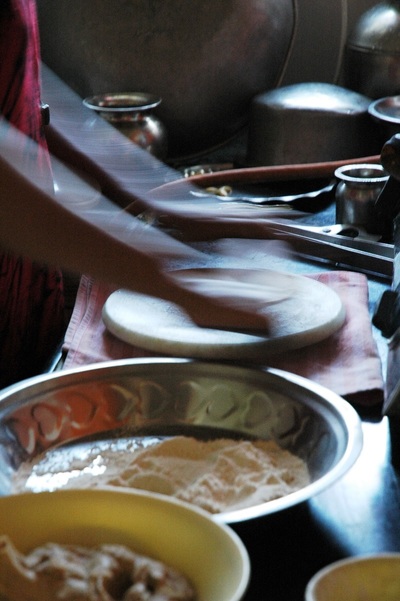
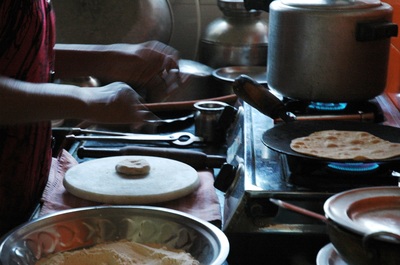
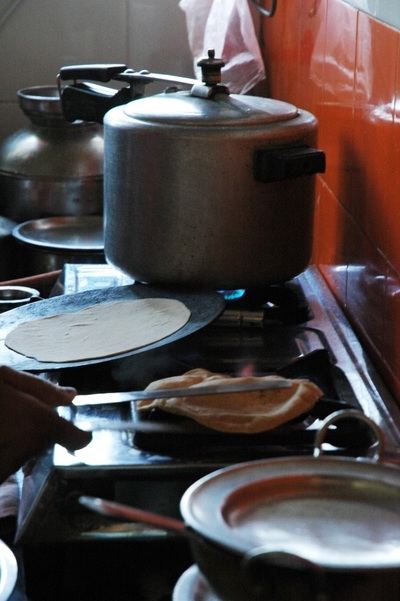
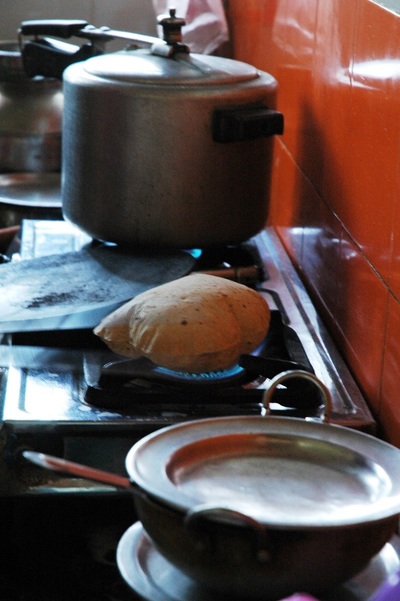

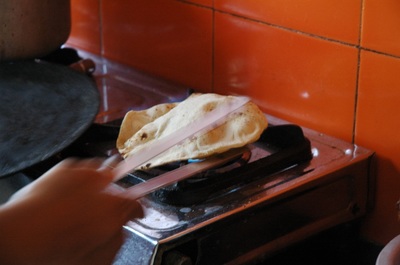

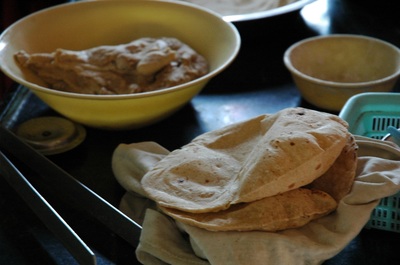
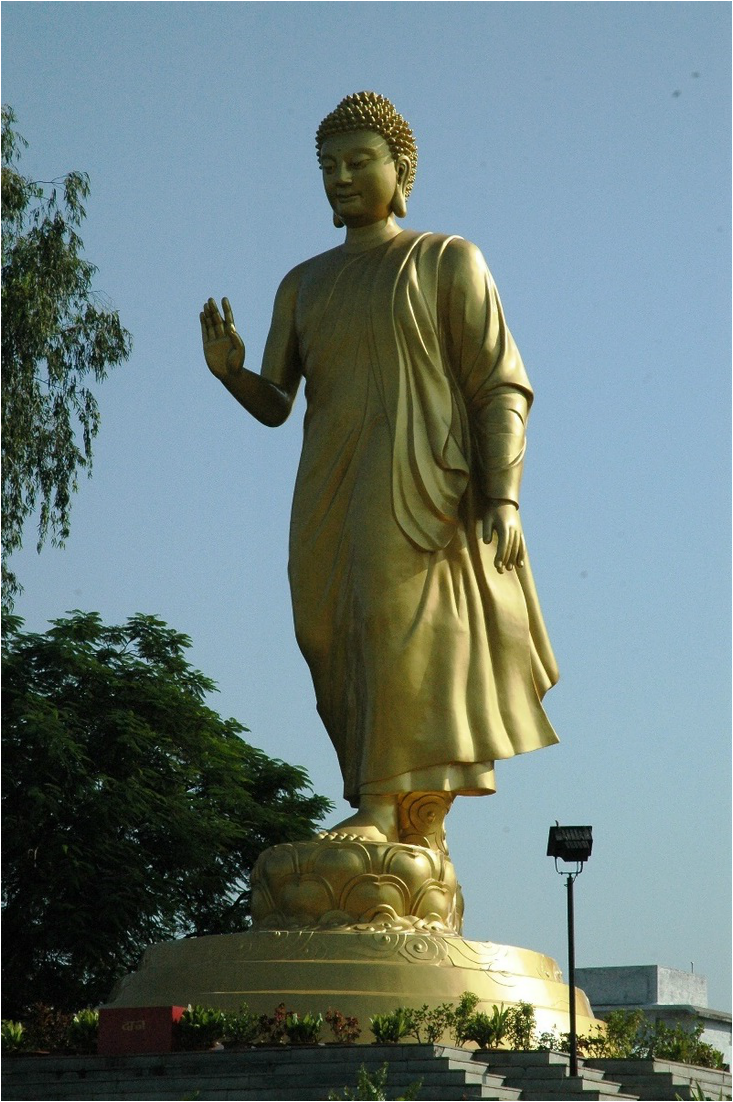
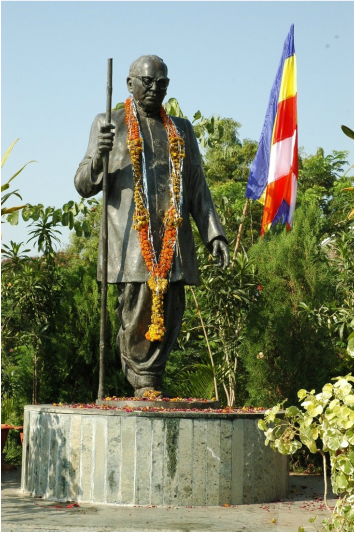
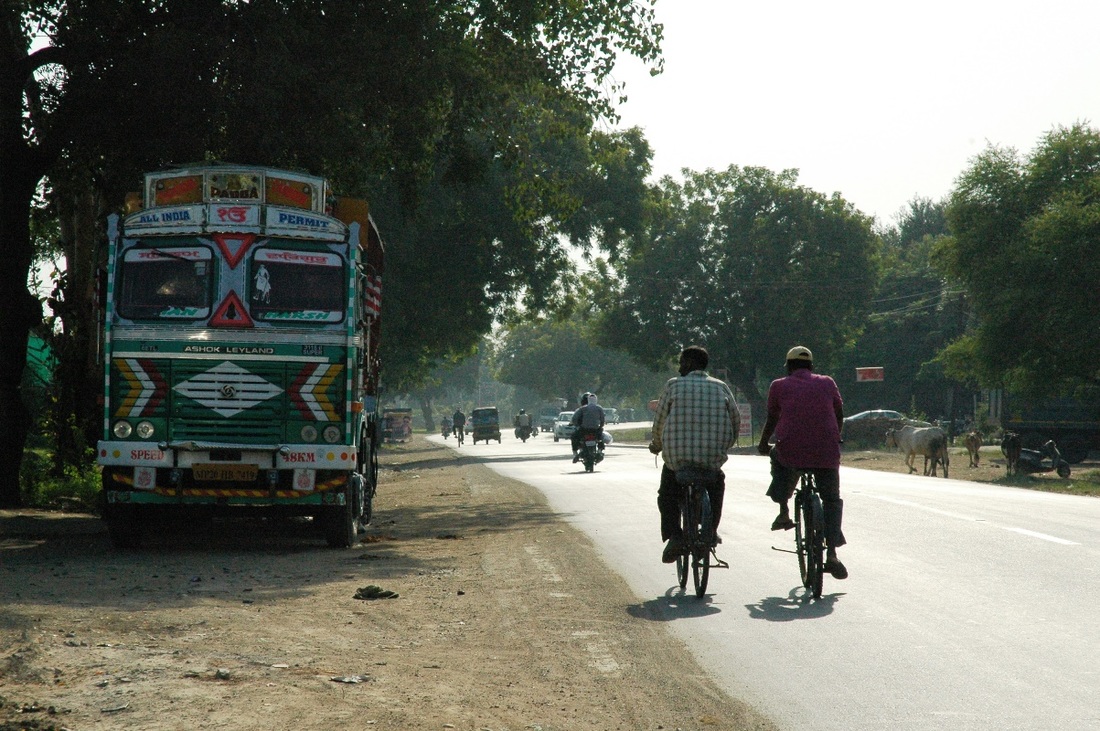
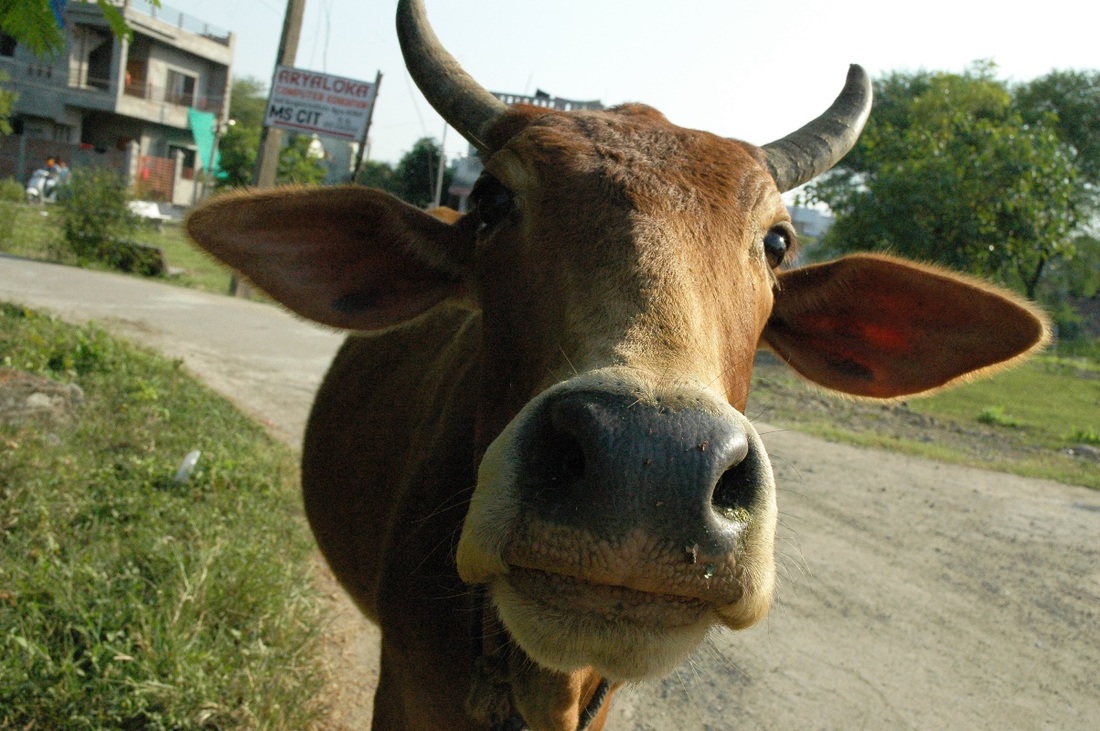
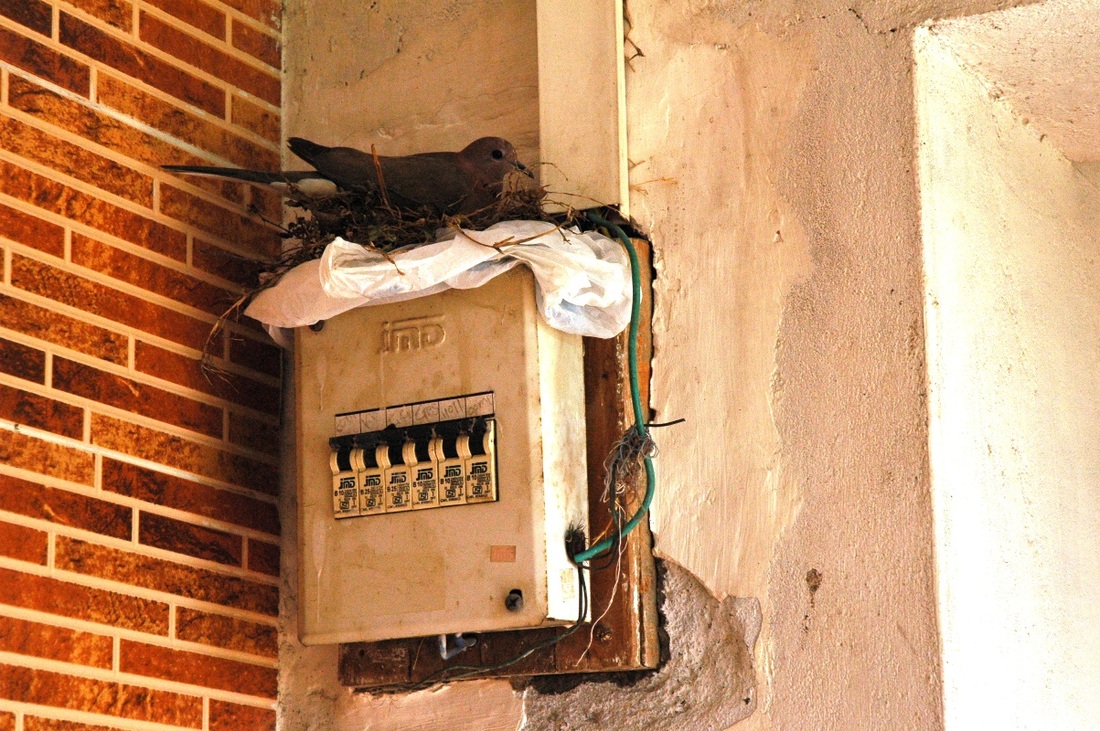
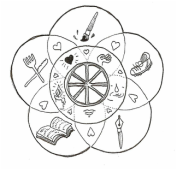
 RSS Feed
RSS Feed
